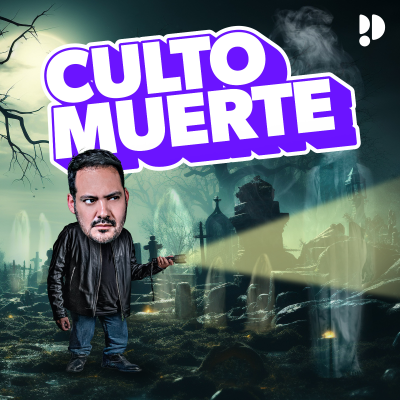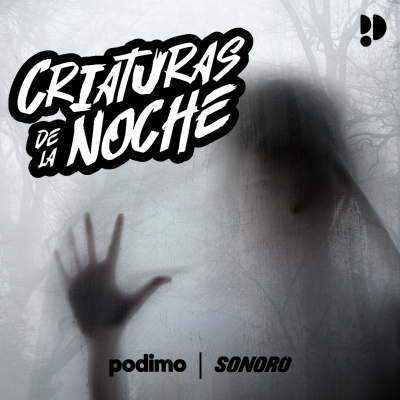
In Our Time
English
History & religion
Limited Offer
2 months for 19 kr.
Then 99 kr. / monthCancel anytime.
- 20 hours of audiobooks / month
- Podcasts only on Podimo
- All free podcasts
About In Our Time
Spanning history, religion, culture, science and philosophy, In Our Time from BBC Radio 4 is essential listening for the intellectually curious. In each episode, host Misha Glenny and expert guests explore the characters, events and discoveries that have shaped our world. History fans can learn about pivotal wars and societal upheavals, such as the rise and fall of Napoleon, the Sack of Rome in 1527, and the political intrigue of the Russian Revolution. Those fascinated by the lives of kings and queens can journey to Versailles to meet Marie Antoinette and Louis XIV the Sun King, or to Ancient Egypt to meet Cleopatra and Nefertiti. Or perhaps you're looking to explore the history of religion, from Buddhism's early teachings to the Protestant Reformation. If you're interested in the stories behind iconic works of art, music and literature, dive in to discussions on the artistic genius of Michelangelo's Sistine Chapel and Van Gogh's famous Sunflowers. From Gothic architecture to the works of Shakespeare, each episode of In Our Time offers new insight into humanity's cultural achievements. Those looking to enrich their scientific knowledge can hear episodes on black holes, the Periodic Table, and classical theories of gravity, motion, evolution and relativity. Learn how the discovery of penicillin revolutionised medicine, and how the death of stars can lead to the formation of new planets. Lovers of philosophy will find episodes on the big issues that define existence, from free will and ethics, to liberty and justice. In what ways did celebrated philosophers such as Mary Wollstonecraft and Karl Marx push forward radical new ideas? How has the concept of karma evolved from the ancient Sanskrit texts of Hinduism to today? What was Plato's concept of an ideal republic, and how did he explore this through the legend of the lost city of Atlantis? In Our Time celebrates the pursuit of knowledge and the enduring power of ideas.
All episodes
1195 episodesHenry IV Part 1
Misha Glenny and guests discuss one of the most successful of Shakespeare's plays in his own time. Written with no Part 2 in mind as 'Henry the Fourth', the play explores ideas about who can be a legitimate ruler and why, and how anyone can rightly succeed to the throne. This was an especially pressing question for his Tudor audience as Elizabeth I had named no successor. Playwrights, banned from openly discussing the jeopardy her subjects faced, turned to these themes of power, legitimacy and succession in distant and recent history. When Shakespeare combined this relevance with the vivid characters of Falstaff, Hotspur and Hal and with the tensions between noble fathers and sons, he had a play that fascinated well into the Jacobean era and has been revived throughout the centuries. With Emma Smith Professor of Shakespeare Studies at Hertford College, University of Oxford Lucy Munro Professor of Shakespeare and Early Modern Literature at Kings College London And Laurence Publicover Associate Professor in the Department of English at the University of Bristol Producer: Simon Tillotson Reading list: Hailey Bachrach, Staging Female Characters in Shakespeare’s English History Plays (Cambridge University Press, 2023) Warren Chernaik, The Cambridge Introduction to Shakespeare’s History Plays (Cambridge University Press, 2007) Stephen Greenblatt, Tyrant: Shakespeare on Power (Bodley Head, 2018) Graham Holderness, Shakespeare: The Histories (Red Globe Press, 1999) Jean Howard and Phyllis Rackin, Engendering a Nation: A Feminist Account of Shakespeare's English Histories (Routledge, 1997) William Shakespeare (eds. Indira Ghose, Anna Pruitt and Emma Smith), Henry IV Part I: The New Oxford Shakespeare (Oxford University Press, 2024) William Shakespeare (ed. Gordon McMullan), 1 Henry IV: A Norton Critical Edition, 3rd edition (Norton, 2003) In Our Time is a BBC Studios Production Spanning history, religion, culture, science and philosophy, In Our Time from BBC Radio 4 is essential listening for the intellectually curious. In each episode, host Misha Glenny and expert guests explore the characters, events and discoveries that have shaped our world.
The Roman Arena
Misha Glenny and guests discuss the countless venues across the Roman Empire which for over five hundred years drew the biggest crowds both in the Republic and under the Emperors. The shows there delighted the masses who knew, no matter how low their place in society, they were much better off than the gladiators about to fight or the beasts to be slaughtered. Some of the Roman elites were disgusted, seeing this popular entertainment as morally corrupting and un-Roman. Moral degradation was a less immediate concern though than the overspill of violence. There was a constant threat of gladiators being used as a private army and while those of the elite wealthy enough to stage the shows hoped to win great prestige, they risked disappointing a crowd which could quickly become a mob and turn on them. With Kathleen Coleman James Loeb Professor of the Classics at Harvard University John Pearce Reader in Archaeology at King’s College London And Matthew Nicholls Fellow and Senior Tutor at St John’s College, Oxford Producer: Simon Tillotson Reading list: C. A. Barton, The Sorrows of the Ancient Romans: The Gladiator and the Monster (Princeton University Press, 1993) Roger Dunkle, Gladiators: Violence and Spectacle in Ancient Rome (Pearson, 2008) Garrett G. Fagan, The Lure of the Arena: Social Psychology and the Crowd at the Roman Games (Cambridge University Press, 2011) A. Futrell, Blood in the Arena: The Spectacle of Roman Power (University of Texas Press, 1997) A. Futrell, The Roman Games: A Sourcebook (Blackwell Publishing, 2006) Keith Hopkins and Mary Beard, The Colosseum (Profile, 2005) Luciana Jacobelli, Gladiators at Pompeii (The J. Paul Getty Museum, 2003) Eckart Köhne and Cornelia Ewigleben (eds.), Gladiators and Caesars: The Power of Spectacle in Ancient Rome (University of California Press, 2000) Donald Kyle, Spectacles of Death in Ancient Rome (Routledge, 1998) F. Meijer, The Gladiators: History’s Most Deadly Sport (Souvenir, 2004) Jerry Toner, The Day Commodus killed a Rhino: Understanding the Roman Games (Johns Hopkins University Press, 2014) K. Welch, The Roman Amphitheatre from its Origins to the Colosseum (Cambridge University Press, 2007) T. Wiedemann, Emperors and Gladiators (Routledge, 1992) In Our Time is a BBC Studios Production
The Mariana Trench
Misha Glenny and guests discuss one of the wonders of the natural world. In 1875 in the western Pacific, the crew of HMS Challenger discovered the Mariana Trench which turned out to be deeper than Everest is high, by two kilometres. Trenches like Mariana form when one tectonic plate slips under another and heads down and there are around fifty of them globally. While at one time some thought it was too dark and deep for life there and others wildly imagined monsters, the truth has turned out to be much more surprising. With Heather Stewart, Director of Kelpie Geoscience and Associate Professor at the University of Western Australia Jon Copley Professor of Ocean Exploration and Science Communication at the University of Southampton And Alan Jamieson Director of the Deep Sea Research Centre at the University of Western Australia Producer: Simon Tillotson Reading list: Susan Casey, The Underworld: Journeys to the Depths of the Ocean (Doubleday, 2023) Jon Copley, Deep Sea: 10 Things You Should Know (Orion Books, 2023) Hali Felt, Soundings: The Story of the Remarkable Woman Who Mapped the Ocean Floor (Henry Holt & Co, 2012) M.E. Gerringer, ‘Pseudoliparis swirei: A newly-discovered hadal liparid (Scorpaeniformes: Liparidae) from the Mariana Trench’ (Zootaxa 4358 (1), 161-177, 2017) A.J. Jamieson, The Hadal Zone: Life in the Deepest Oceans (Cambridge University Press, 2015) A.J. Jamieson et al., ‘A global assessment of fishes at lower abyssal and upper hadal depths (5000 to 8000 m)’ (Deep-Sea Research Part 1. 178: 103642, 2021) A.J. Jamieson et al., ‘Fear and loathing of the deep ocean: Why don’t people care about the deep sea?’ (ICES Journal of Marine Science. 78: 797-809, 2020) A.J. Jamieson et al., ‘Microplastic and synthetic fibers ingested by deep-sea amphipods in six of the deepest marine environments on Earth’ (Royal Society Open Science, 6, 180667, 2019) A.J. Jamieson et al., ‘Bioaccumulation of persistent organic pollutants in the deepest ocean fauna’ (Nature Ecology and Evolution. 1, 0051, 2017) V.L. Vescovo et al., ‘Safety and conservation at the deepest place on Earth: A call for prohibiting the deliberate discarding of nondegradable umbilicals from deep-sea exploration vehicles’ (Marine Policy. 128, 104463, 2021) J.N.J. Weston et al., ‘New species of Eurythenes from hadal depths of the Mariana Trench, Pacific Ocean (Crustacea: Amphipoda)’ (Zootaxa. 4748(1): 163-181, 2020) In Our Time is a BBC Studios Production Spanning history, religion, culture, science and philosophy, In Our Time from BBC Radio 4 is essential listening for the intellectually curious. In each episode, host Misha Glenny and expert guests explore the characters, events and discoveries that have shaped our world.
On Liberty
Journalist, author and historian Misha Glenny presents his first edition of In Our Time, succeeding Melvyn Bragg who retired from this role last summer. Misha and his guests discuss the landmark work On Liberty by John Stuart Mill, published in 1859 and the increasing recognition for his wife Harriet Taylor Mill's contribution. The subject matter of the essay is ‘civil or social liberty: the nature and limits of the power which can be legitimately exercised by society over the individual’ and it argues that the sole end for which mankind may interfere with the liberty of action of anyone is self-protection and even then only to prevent harm to others. This essay became enormously popular and a foundational text for liberalism. With Helen McCabe Professor of Political Theory at the University of Nottingham Mark Philp Emeritus Professor of History and Politics at the University of Warwick And Piers Norris Turner Associate Professor of Philosophy at The Ohio State University Producer: Simon Tillotson Reading list: Jo Ellen Jacobs (ed.), Harriet Taylor Mill, Complete Works (Indiana University Press, 1998) Bruce L. Kinzer, Ann P. Robson and John M. Robson, A Moralist In and Out of Parliament: John Stuart Mill at Westminster, 1865-1868 (University of Toronto Press, 1992) Christopher Macleod and Dale Miller (eds.), A Companion to Mill (Wiley, 2016) Helen McCabe, John Stuart Mill, Socialist (McGill-Queen’s University Press, 2021) Helen McCabe, Harriet Taylor Mill (Cambridge, 2023) Piers Norris Turner, ‘The Arguments of On Liberty: Mill’s Institutional Designs’ (Nineteenth-Century Prose 47 (1), 2020) Piers Norris Turner et al (eds.), John Stuart Mill and Harriet Taylor Mill, On Liberty with Related Writings (Hackett Publishing, forthcoming 2026) Mark Philp (ed.), John Stuart Mill: Autobiography (Oxford University Press, 2018) Mark Philp and Frederick Rosen (eds.), John Stuart Mill: On Liberty, Utilitarianism and other Essays (Oxford University Press, 2015) Frederick Rosen, Mill (Oxford University Press, 2013) Alan Ryan, The Philosophy of John Stuart Mill (Palgrave MacMillan, 1998) Ben Saunders, ‘Reformulating Mill’s Harm Principle’ (Mind 125/500, 2016) John Skorupski, Why Read Mill Today? (Routledge, 2006) William Stafford, John Stuart Mill (Red Globe Press, 1998) C. L. Ten (ed.), Mill: On Liberty: A Critical Guide (Cambridge University Press, 2008) Nadia Urbinati and Alex Zakaras (eds.), John Stuart Mill’s Political Thought: A Bicentennial Reassessment (Cambridge University Press, 2007) In Our Time is a BBC Studios production
Welcoming Misha Glenny
Misha Glenny introduces himself to you ahead of his first episode on 15th January, answering some questions from producer Simon Tillotson and sharing what's coming up in the first few weeks. In Our Time is a BBC Studios production
Choose your subscription
Limited Offer
Premium
20 hours of audiobooks
Podcasts only on Podimo
All free podcasts
Cancel anytime
2 months for 19 kr.
Then 99 kr. / month
Premium Plus
Unlimited audiobooks
Podcasts only on Podimo
All free podcasts
Cancel anytime
Start 7 days free trial
Then 129 kr. / month
2 months for 19 kr. Then 99 kr. / month. Cancel anytime.





































